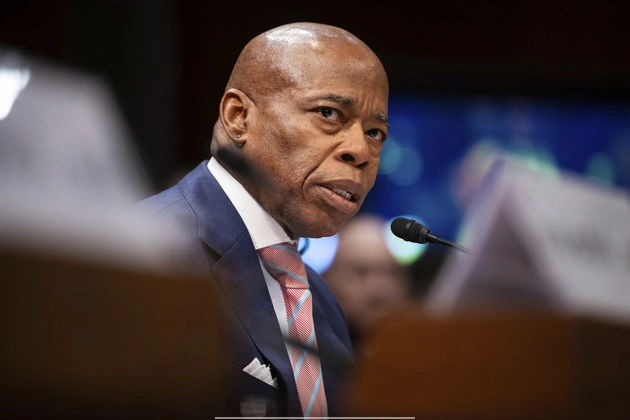
In a bid to rectify past mistakes, the Working Families Party (WFP) in New York City is adopting a unique strategy for the upcoming 2025 Democratic primary, steering clear of endorsing Mayor Eric Adams.
The WFP’s approach involves encouraging candidates not to include Adams in their list of preferred choices for ranked-choice voting, dubbing it an ‘anti-endorsement’ policy.
Ana María Archila, co-executive director of the WFP in New York, emphasized that candidates seeking WFP support must actively discourage ranking Adams if they oppose his mayoral candidacy.
Central to their strategy is leveraging the ranked-choice voting system introduced in 2021, where voters can select up to five candidates in order of preference.
Archila highlighted the importance of candidates recognizing the collaborative nature required to succeed in a ranked-choice voting system, moving beyond self-promotion towards a unified strategy for victory.
Reflecting on the 2021 mayoral race, Archila noted the challenges faced by progressive candidates and the need for a cohesive strategy rather than relying solely on individual campaigns.
The WFP’s initial endorsements in 2021 experienced setbacks, with the subsequent withdrawal of support for Scott Stringer and Dianne Morales due to separate controversies, ultimately leading to Maya Wiley becoming their top choice.
Despite Wiley’s third-place finish in the primary, her supporters inadvertently contributed to Adams’ victory when their votes were redistributed.
Learning from past missteps, Archila emphasized the importance of unity around a strategic vision rather than allegiance to a specific candidate.
The WFP’s criteria for endorsing candidates in 2025 include a commitment to collaboration with fellow progressives and a focus on addressing affordability and the cost of living.
Furthermore, the party aims to elect a mayor who embodies courage in confronting authoritarian influences, distinguishing themselves from Adams’ leadership style.
Responding to the WFP’s strategy, a political adviser to Adams expressed skepticism towards the party’s approach, highlighting potential challenges in coordinating multiple progressive candidates.
The WFP plans to send an extensive endorsement questionnaire to mayoral candidates, with a slate of ‘working families champions’ set to be announced in March.
While the initial endorsements won’t be ranked, the party remains open to proposing a ranking closer to the voting period if necessary for consolidation.
Archila disclosed ongoing discussions with prominent figures like City Comptroller Brad Lander and several state senators regarding potential endorsements.
As the political landscape evolves, the entrance of new candidates alongside Stringer’s reelection bid signifies a dynamic environment aiming to challenge Adams’ position.
The influx of candidates aligned against Adams signals a growing movement to unite voters against his leadership, potentially extending to thwarting former Gov. Andrew Cuomo if he enters the race.
Despite concerns about the party’s diminished influence since the tenure of former Mayor Bill de Blasio, the WFP remains optimistic about mobilizing voters to support progressive alternatives to Adams.
While facing uncertainties about maintaining unity among diverse candidates, the party’s strategic shift reflects a determined effort to influence the upcoming election dynamics.
This article was originally featured in New York Playbook.















